The emergence and growth of Artificial Intelligence (AI) in research and industrial implementation have been on the rise for the last few years. Academic institutions have shown an increased focus on AI with new initiatives such as seed grants, hiring new faculty with AI expertise, AI-focused classes and seminars, etc. Industry and government agencies are also gearing toward using AI methodologies and techniques to improve operating and product efficiency. This panel discusses how the Industry and Government Agencies are ramping their efforts to implement AI.
What is discussed:
- AI Implementation in Industry: Learn more about AI implementation in large corporations and small to medium manufacturers.
- What are the prerequisites? Before venturing into implementing AI in the industry, what are the Dos and Don'ts?
- Government agency's roles: How are government agencies helping and coordinating these new challenges? How are academic researchers and industry partners working together toward successful AI implementation in the industry?
- Role of students: What is the industry looking for in new students/intern hires concerning AI skill set?
Moderators
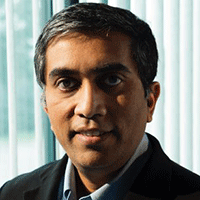
Dr. Sekhar Rakurty has over a decade of experience in industrial research and development in the manufacturing sector, focusing on cutting and machine tool design, as well as advancing sustainable, AI-assisted manufacturing processes. He earned both his M.S. and Ph.D. in Mechanical Engineering from the University of Utah. Dr. Rakurty holds more than 16 approved patents across the United States, Canada, India, Japan, Australia, the United Kingdom, the European Union, Ireland, and Mexico, with five additional patents pending. His patented technologies are commercially available and used by a global customer base. He has authored over 25 peer-reviewed publications in leading international journals and conferences. He currently serves as the industrial Principal Investigator on multiple federally and industry-funded research projects focused on developing advanced manufacturing methods and cutting tools for extreme environments. Dr. Rakurty is the Vice Chair of the ASME Board on Standardization and Testing, an Associate Editor for the Machining Science and Technology journal, and an Adjunct Professor in the Department of Mechanical Engineering at the University of Akron.
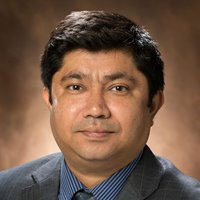
Dr. Muhammad P. Jahan is a tenured Associate Professor in the Mechanical and Manufacturing Engineering department at Miami University. He was the graduate program director of the Mechanical Engineering graduate program from Jan, 2020 to Jul, 2023. Dr. Jahan completed his PhD from National University of Singapore in 2010, and worked as a Postdoc at University of Arkansas (2010 – 2012) and as a tenure-track Assistant Professor at Western Kentucky University (2012 – 2016). Dr. Jahan worked at Makino Asia Pte Ltd as an R&D Engineer (2009 – 2010) before returning to academia. Dr. Jahan's research interests are in the areas of Advanced, Additive, Subtractive, Hybrid, and Micro and Nano Manufacturing. Dr. Jahan's research has been supported by federal, state, and industry grants including NSF, NSF-KY EPSCoR, ODHE, NASA OSGC, LAM Research Corporation, M K Morse Company, and Bullen Ultrasonics. He has received a total of over $3M from internal and external grants as PI and co-PI and published over 150 peer-reviewed articles in refereed journals and conferences. He received four best paper awards including the "Outstanding Paper Award" from Society of Manufacturing Engineers (SME, USA) and "A.M. Strickland" prize from the Institute of Mechanical Engineers (IMechE, UK). Dr. Jahan is a Fellow of American Society of Mechanical Engineers (ASME), and active members of Society of Manufacturing Engineers (SME), and American Society for Engineering Education (ASEE).
Panelists
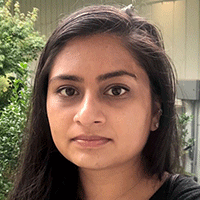
Vinija Jain leads a GenAI team at Google focused on refining and extending Gemini's agentic capabilities. Before joining Google, she was at Meta, where she developed intelligent, high-impact solutions to optimize advertiser outcomes and user engagement. Prior to Meta, she founded and led an agentic AI startup in the customer support space, driving the development of autonomous agents that streamlined customer interactions and enhanced service quality for enterprise clients. Earlier in her career, she worked at Amazon Music, where she contributed to personalization and voice experiences, helping integrate music intelligence within Alexa. Vinija's work lies at the intersection of product innovation and applied research, spanning areas such as generative modeling, user modeling, conversational AI, and reinforcement learning. She has co-authored papers in leading conferences and journals, including ACL, EMNLP (Outstanding Paper Award '23), AAAI, EACL, ECML, WSDM, CVPR, WACV, and ICASSP, and maintains a blog at vinija.ai.
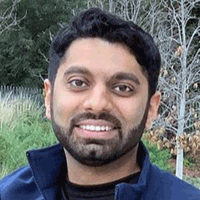
Aman Chadha manages a Generative AI team of scientists and managers at Apple, focusing on training and deploying GenAI models for Apple Intelligence. Prior to this, he managed a GenAI team of scientists and managers at AWS, responsible for LLM/VLM models for a range of use-cases including document processing, synthetic data generation, and customer support. During his tenure at Amazon Alexa AI, he spearheaded Query Understanding and Personalization, enhancing user interactions while maintaining safety and reliability. At Apple, as part of the Machine Intelligence Neural Design (MIND) team, he specialized in designing on-device multimodal AI models for applications including NLP, Computer Vision, and Speech Recognition. In parallel to his industrial role, Aman actively advises projects in academia, focusing on areas such as LLMs, prompt engineering, hallucination detection, bias and fairness, and multimodal AI. He has co-authored papers in leading conferences and journals, including ACL, EMNLP, AAAI, EACL, ECIR, ECML, WSDM, CVPR, WACV, ICASSP, etc. His work has been featured in media outlets such as The Washington Post, MIT Technology Review, Nature, Wikipedia, New Scientist, Analytics India Magazine, and YourStory.
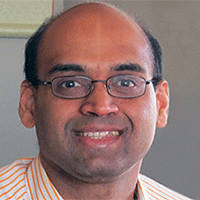
Satish Bukkapatnam is a Regents Professor and Rockwell International Professor of Industrial & Systems Engineering at Texas A&M University. He also serves as a program director at NSF Advanced Manufacturing Program. He received his Ph.D. degree in Industrial and Manufacturing Engineering from Pennsylvania State University. His research interests are broadly in smart and precision manufacturing. He is a Fellow of IISE and SME, Associate member of CIRP, and was a Fulbright-Tocqueville Distinguished Chair.
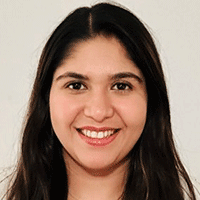
Dr. Purvee Bhatia is a Research Engineer in AI and Smart Manufacturing Innovation at the University of South Florida’s Smart and Sustainable Systems Lab. Her work lies at the intersection of agentic AI, computer vision, and edge computing, where she develops intelligent systems for real-time process optimization and decision-making in advanced manufacturing environments. She specializes in Vision Transformers, AI agents, and advanced process analytics for smart manufacturing. Dr. Bhatia’s research bridges advanced research and industrial applications designing AI-driven frameworks that improve quality, operational efficiency, and sustainability, particularly for small and medium-sized enterprises. A Lean Six Sigma Black Belt and recipient of the McKinsey Forward Program Badge, she drives transformation through practical, scalable, and human-centered AI solutions. Beyond her research, Dr. Bhatia has served as a consultant with FloridaMakes, where she designed and delivered training on AI and edge computing for educators and industry professionals. She leads strategic planning for Introduction to Production Systems Certificate course to improve learner engagement, retention, and curriculum alignment with industry priorities. Her work has led to peer-reviewed publications and invited talks in the field of smart and sustainable manufacturing. She has also mentored several graduate and undergraduate students in research on machine vision, additive manufacturing, and predictive modeling. She also holds a bachelor's degree in aerospace engineering where she worked on debris removal from lower earth orbits and has also worked with Tata Lockheed Martin Aerostructures (India) where, she contributed to the digitization of manufacturing workflows for tactical airlifters such as the C-130J Super Hercules during her tenure.